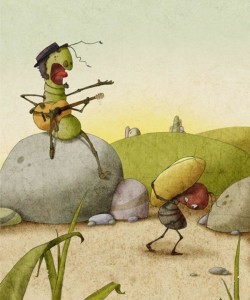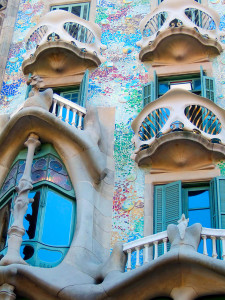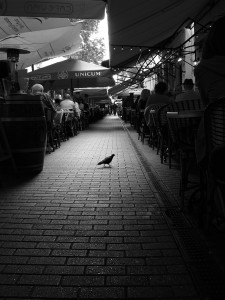En text på svenska, till viss del för att återknyta till det som nu är lämnat. Språk är som kläder, man kryper ur vissa, kryper in i andra. Man inte bara ser annorlunda ut, man tänker och känner sig annorlunda också.
Jag har skrivit så många ord på svenska, inte minst som kåsör, så jag har skaffat mig svenska “språkvanor”, vilka alltså inte bara handlar om språk utan om attityder och beteende.
Så vad säga om det gångna året? Och varför? Massmedia älskar den här slutliga utvärderingen, att göra kavalkad av årets händelser. Ett visst underhållningsvärde, viss hjälp för oss med dåligt minne (fast värdet i att erinra sig katastrofer och kriser kan ifrågasättas), ett visst perspektiv på mänsklighetens utvecklingsnivå. Därför.
Allt detta kan appliceras på mitt år. För det första kan man säga att det varit ett år av inåtvändande. Det där var ett fint ord, för det indikerar samtidigt riktning, svängning och resa. Man vänder inåt, man vänder åter.
Mitt intresse för “världen” och dess förehavanden, inte minst dess dumheter och problem — som jag förr älskatt att kattlikt observera, syna och kritisera — har krympt till en tummetott. Jag har kanske inte blivit världsfrånvänd, snarare omdefinierat “värld”. Medan världen förr var stor och global (och handfast materiell) har den nu blivit mer en liten täppa med grönsaksodling. Detta kan låta som ett krympande, det är också samtidigt ett växande, för den stora, globala världen är i själva verket mest en tanke, så länge som man främst läser och hör talas om den. Inte en realitet. Mina egna grönsaker är en realitet, och de sträcker sig på sätt och vis mycket längre bort, och högre upp, än alla nyheter om “världshändelser”.
Det där var ett långt stycke. Den kan kort sammanfattas till “mind your own business”. Det är det jag börjat göra, bättre sent än aldrig.
Rollen som samhällskritiker, något som jag mycket aktivt påtog mig med start i boken “Offensiv nostalgi”, känns dammig. Nytt rollhäfte behövs, nya repliker behöver skrivas eller bara improviseras.

En mycket konkret sak som hänt i världen (sic) 2015 är att jag blivit på sätt och vis hemlös. Sverige är inget hem längre. Dels har jag ingen bostad där, men jag har inte heller någon hemkänsla där.
Detta behöver inte vara något dramatiskt, så blir det ibland. Man tröttnar, sliter ut skon, och går vidare. Kanske barfota ett tag, eller så tröttnar man helt på skor, vill inte längre ha något med dem att skaffa utan nynnar på Povel Ramels melodi.
Att skriva denna text på svenska är därmed en märklig upplevelse. Svenska är ju mitt bästa språk, den jag behärskar bäst, den sjö jag simmat längst i. Men nu tar jag mitt upp ur vattnet och övergår till engelska, ett språk där jag har mindre erfarenhet, färre språkvanor, större fräschör, mer möjlighet att skapa något nytt, där jag inte dras tillbaka av mitt förflutna, min offensiva nostalgi.
Det känns naturligtvis (också) härligt att falla tillbaka på språket man väl behärskar, där man får till de rätta nyanserna och valörerna. Men så skönt ska vi inte ha det. Ett fall är ett fall, om än ett skönt fall.

Det gångna året har varit som en sträng men rättvis lärare. Den gamla sorten, den som slår en med linjal, eller något ännu vassare. Först blir man förbannad “Vad gör du, ska du slåss…!!?”. Sen, när sveda och ursinne lagt sig, börjar man fundera på om man kanske förtjänade stryk. Och vad “stryk” egentligen är. Vad “lidande” är. Vad man själv är, och varit.
Och då börjar svedan kännas nästan som kärlek. Åtminstone om man med kärlek menar något som knuffar (sparkar, om man är motsträvig) en vidare till nästa steg. Ett steg som man varit mogen för ett längre tag, men som man förhalat och skjutit framför sig.
En vishetslärare sa: Alla opponerar sig mot lidande, ingen protesterar mot ignorans. Det kanske borde vara tvärtom. Att vi inte accepterade vår ignorans, våra dumheter, vårt oklara tänkande och grumliga synfält, däremot var beredda att bära den smärta som är en konsekvens av ignorans och dåligt tänkande.
Låt mig också tillägga oärlighet.
Ärlighet, syns det mig, är något av det högsta en människa kan prestera. Vi prisar ofta sanningen, hela discipliner och domäner skriver SANNING på sina banér. Men yttre sanning kan vilken som helst idiot med ett bra uppslagsverk skaffa sig. Få av oss mäktar däremot med att vara riktigt, totalt ärliga. Inte nödvändigtvis offentligt, i en blogg eller TV-soffa, utan inför oss själva.
Förresten, hur vet jag att det är få? Ett antagande bara, en misstanke. Egentligen angår det mig inte hur många eller få som är ärliga; med min mindre (större) värld är det bara MIN ärlighet som är essentiell. Vad andra gör är inte min sak, vad samhället ägnar sig åt… jovars, jag tycker nog fortfarande att det är min sak att inkomma med rapport om vad jag ser, men inte på bekostnad av vad jag ser inuti mig.

Jag kommer nu på mig med att skriva alltför flyhänt. Det svenska språket rinner alldeles för lätt, jag fyller sidan med svenskismer utan att behöva verkligen tänka. Inte bra.
Så det gångna året avslutas nu. Ett år av lidande, skapat av ignorans och högmod. Men vänta… det är ju flera dagar kvar på året! Än kan det få ett riktigt happy end .-)
Det önskar jag er som läser detta. Happy inte i betydelse fri från lidande utan krympande av ignorans, och “gott nytt år” inte i betydelsen nya händelser och ting utan nya insikter.
Det är i alla fall planen för mitt nya år.








